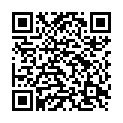|
|
|
| Module code: MST2.NTI |
|
|
1V+1U (2 hours per week) |
|
2 |
| Semester: according to optional course list |
| Mandatory course: no |
Language of instruction:
English/German |
Assessment:
Project work
[updated 30.10.2023]
|
MST2.NTI (P231-0153) Mechatronics and Sensor Technology, Bachelor, ASPO 01.10.2020
, optional course
Suitable for exchange students (learning agreement)
|
30 class hours (= 22.5 clock hours) over a 15-week period.
The total student study time is 60 hours (equivalent to 2 ECTS credits).
There are therefore 37.5 hours available for class preparation and follow-up work and exam preparation.
|
Recommended prerequisites (modules):
None.
|
Recommended as prerequisite for:
|
Module coordinator:
Prof. Dr.-Ing. John Heppe |
Lecturer: Prof. Dr.-Ing. John Heppe
[updated 28.08.2023]
|
Learning outcomes:
The tasks of an engineer can be roughly divided into technical and non-technical tasks. Students will become familair with non-technical challenges in the engineering profession through examples. The course will be practice and training-oriented, include a business simulation game, and depending on the task assigned, could also be held in English.
After successfully completing this module, students will be able to:
- identify possible challenges outside the technical area
- develop solutions on their own initiative
- understand the different interests of various project members.
[updated 30.10.2023]
|
Module content:
- Change Management - Dealing with resistance
- Conflict management
- Types of motivation
- The term “resilience”
- Diversity/intercultural cooperation in the engineering world
- Challenges in an international environment
- Advantages, disadvantages of standardization
- Interface management
[updated 30.10.2023]
|
Teaching methods/Media:
Blackboard, projector, exercises
[updated 30.10.2023]
|
Recommended or required reading:
Project-dependent lecture notes, will be developed during the lecture.
[updated 30.10.2023]
|


